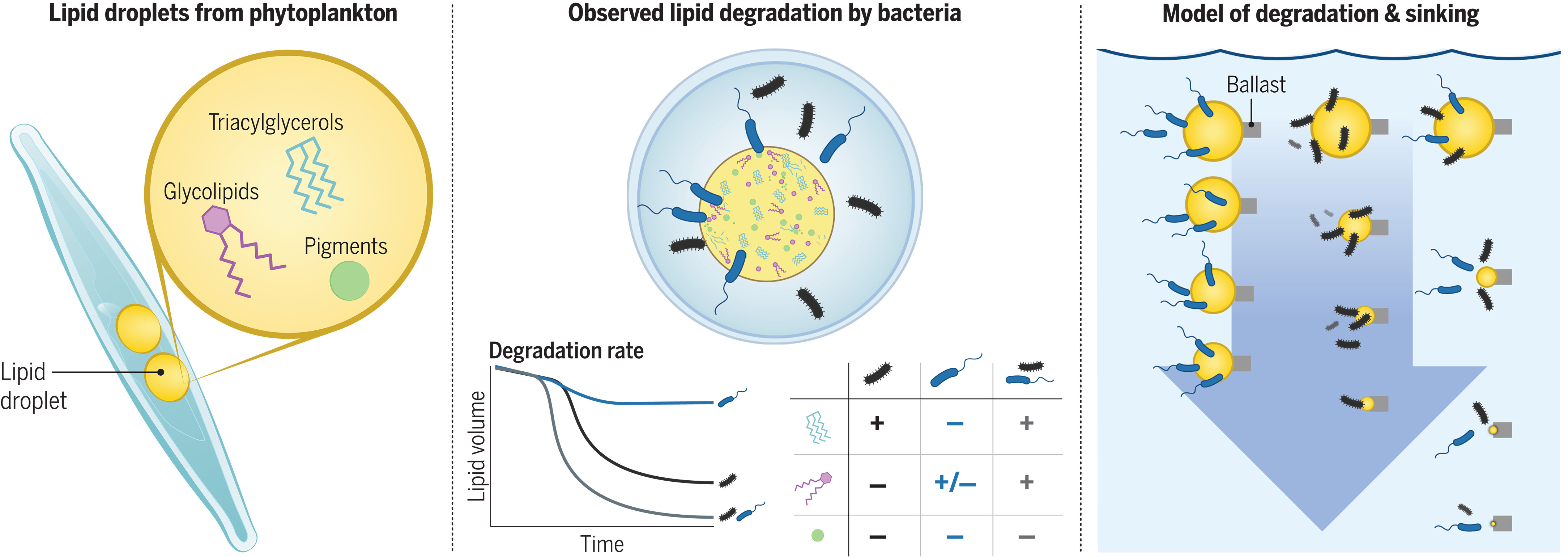Thrilled to share our latest publication, in the journal 𝘚𝘤𝘪𝘦𝘯𝘤𝘦.
I am thrilled to announce the publication of our paper “Microbial dietary preference and interactions affect the export of lipids to the deep ocean”, on which I acted as a co-lead author.
The paper discusses how microbial dietary preferences and interactions shape the degradation of lipids in the ocean, of relevance to carbon cycling in the marine environment and ultimately global climate.
A huge thank you to an incredible group of co-authors. It has been an honour.
See also the third party perspective by Florence Schubotz.

(Middle) Droplets were exposed to bacteria that exhibited preferences for degrading lipid molecules at different rates, which changed when bacteria interacted.
(Right) Modeled droplets (with ballast to cause sinking) showed how preferences and interactions might affect lipid export in the ocean.
Abstract
Lipids comprise a significant fraction of sinking organic matter in the ocean and play a crucial role in the carbon cycle. Despite this, our understanding of the processes that control lipid degradation is limited. We combined nanolipidomics and imaging to study the bacterial degradation of diverse algal lipid droplets and found that bacteria isolated from marine particles exhibited distinct dietary preferences, ranging from selective to promiscuous degraders. Dietary preference was associated with a distinct set of lipid degradation genes rather than with taxonomic origin. Using synthetic communities composed of isolates with distinct dietary preferences, we showed that lipid degradation is modulated by microbial interactions. A particle export model incorporating these dynamics indicates that metabolic specialization and community dynamics may influence lipid transport efficiency in the ocean’s mesopelagic zone.